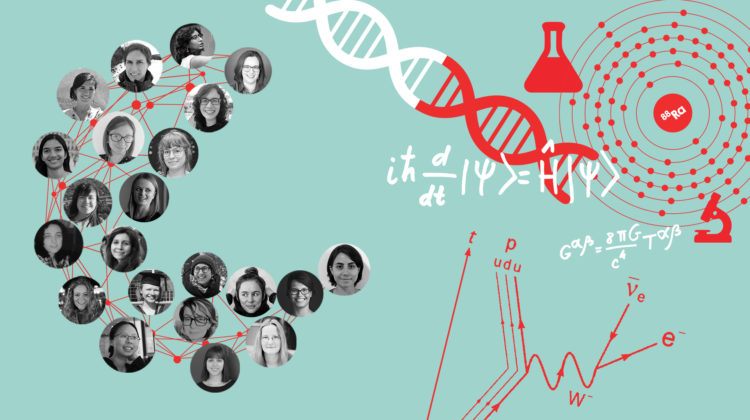The Building Blocks of the Universe — Phiala Shanahan public lecture webcast
More than 99 percent of the visible matter in the universe is built from protons and neutrons and the nuclei that they form. This rich structure emerges dynamically from the complex interactions of quarks and gluons, the most elementary particles that have been discovered.
Understanding how nuclear physics arises from the underlying quark and gluon dynamics is a computational challenge that pushes the capabilities of the world’s largest supercomputers.
In her public lecture at Perimeter Institute on Wednesday Nov. 7, Phiala Shanahan will introduce the audience to the subatomic realm and describe what supercomputer calculations of quarks and gluons can reveal about the origins of mass, the primordial nuclear reactions that power the Sun, and the nature of the elusive dark matter that permeates the universe.
Shanahan is an Assistant Professor of Physics at MIT. She grew up in Adelaide, Australia, and obtained her BSc from the University of Adelaide in 2012 and her PhD, also from the University of Adelaide, in 2015. Before joining the MIT faculty, Shanahan was a Postdoctoral Associate at MIT from 2015-2017, and held a joint position as Assistant Professor at the College of William & Mary and Senior Staff Scientist at the Thomas Jefferson National Accelerator Facility from 2017-2018.
Shanahan has been honoured by both the Australian Institute of Physics and the American Physical Society, is the recipient of a CAREER award from the National Science Foundation, and was listed in the Forbes Magazine 30 under 30 in Science in 2017.
She is currently an Emmy Noether Visiting Fellow at Perimeter Institute. Perimeter’s Emmy Noether Visiting Fellowships support exceptional young women at critical stages of their physics careers. Get to know this year’s Simons Emmy Noether Fellows and learn more about all of Perimeter’s Emmy Noether Initiatives.
Tickets to attend the talk in person will be available here at 9 AM on Monday, Oct. 22.

PERIMETER INSTITUTE RECORDED SEMINAR ARCHIVE






















































































